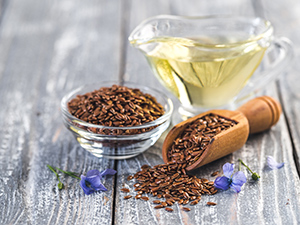Table of Contents
Urinary Stones

Urinary stones are among the urinary system diseases that result from calculi formation in a liquid environment, in this case, urine. Calculi form is caused by the precipitation or solidification of substances, usually dissolved for physical or chemical reasons. These dissolved substances form a solid core called calculus. The size of the stones varies wildly, from that of sand grains, which are easy to eliminate, to larger stones.
These herbs exert a preventative action, which is notable in stone formation. They can even dissolve, in some cases, already-formed calculi. The following herbs must be taken during specific periods to exert their effects: between one and six months and stopping one week per month.
Herbs for Urinary System Diseases: Stones
| Carrot | Kneeholly | Lemon tree |
| Nettle | Onion | Primrose |
| Apple tree | White birch | Eryngo |
| Wild strawberry | Gromwell | Restharrow |
| Winter cherry | Madder | Saxifrage |
| Sand spurry | Indian corn | Meadowsweet |
| Horsetail |

Kidney Colic
This condition, also called renal or nephritic colic, is an ailment that manifests as intense pain that starts in one or both kidneys and goes toward the groin area. It is produced when a calculus becomes blocked within the urethra, an exemplary duct that joins the kidneys with the urine bladder. The pain is triggered by spasms of the tiny muscles that form the urethra walls, which are trying to expel the stone inside it.
Phytotherapeutic herbal treatment is based on antispasmodic and diuretic plants, which can relax the spasms of the urethra and increase the production of urine. In external applications, hot poultices of linseed flour are very useful.
Herbs for Kidney Colic
| Passionflower | Vervain | Roman chamomile |
| Asafetida | Abelmosk | German chamomile |
| Lemon Verbena | Flax | Biznaga |
| Arbutus | White birch | Gromwell |
| Pellitory of the wall | Madder | Saxífraga |
| Arenaria rubra |

Edema
An excessive accumulation of liquid in tissues. It may be caused by renal reasons when kidneys are inflamed (nephritis) and do not produce enough urine or for circulatory reasons. Water and sodium chloride passing from blood to tissues occur in both cases. An upsurge in body weight and a decrease in urine volume happen when there is edema. Plants recommended here have a mild and safe diuretic effect, eliminating liquids retained in tissues.
Herbs for Edema
| Yellow bedstraw | Mouse-ear | White birch |
| Wild teasel | Eryngo | Cammock |
| Goldenrod | Indian corn | Asparagus |
| Javan tea | Horsetail |
Dropsy
General edema manifests itself as total body swelling. It is usually due to heart insufficiency or severe metabolic disorders. Phytotherapeutic treatment, which must be applied under medical control, is based on plants with diuretic and sudorific properties, which promote the elimination of liquids, and cardiotonic properties, which improve heart performance.
Herbs for Dropsy
Hematuria
This condition is caused by blood in the urine. When the causative agent is known, take these plants orally. They have hemostatic and astringent properties, acting on the urinary organs that bleed.
Herbs for Hematuria
Nephritis and Nephrosis
Nephritis, also called glomerulonephritis, is an inflammation of the kidneys, usually caused by autoimmune causes. It manifests through a lack of urine, and the little passed is bloody. Other symptoms are facial edema (swollen face) and high blood pressure.
Nephrosis is another kind of kidney affliction that manifests with the emission of significant amounts of proteins into the urine. In both cases, medical assistance is required. These plants can, however, promote the regeneration of the afflicted renal tissues.
Herbs for Nephritis and Nephrosis
| Hawkweed | Apple tree | Grapevine |
| Canoe birch | Cherry tree | Sarsaparilla |
| European goldenrod | Cacao | Indian corn |
| Pumpkin | Storkbill | Borage |
Pyelonephritis
Diverse microorganisms usually cause infections of the pelvis and renal tissues. Symptoms include high fever and kidney pain. Phytotherapeutic treatment involves plants with antibiotic, antiseptic, and anti-inflammatory properties for urinary organs, especially kidneys.
Herbs for Pyelonephritis

Urinary Infection
Germs causing urinary infections are sensitive to chemically synthesized antibiotics but quickly become resistant to these substances. Antiseptic and antibiotic substances in medicinal herbs have less intense action than synthesized antibiotics. Still, they undergo fewer resistance reactions from germs, do not suppress body defenses, and reduce the inflammation of urinary organs. When correctly used, these plants can solve urinary infections of several types, especially in chronic repetitive cases.
Herbs for Urinary Infections
| Garlic | Bilberry | Myrtle |
| Master of the wood | Witch grass | Arbutus |
| Arberry | Heather | Wild cherry tree |
| Echinacea | Thyme | Tropaeolum majus |
Cystitis
Inflammation of the urinary bladder is usually caused by bacteria ascending through the urethra from the exterior. It tends to repeat itself, especially in women. Medicinal herbs mainly exert a preventative action in these cases, and they must be taken one to three weeks after the acute phase has passed.
Herbs for Cystitis
| Rusty back | Garden violet | Galium verum |
| Flax | Psyllium | Bear’s grape |
| Bucku | Pellitory of the wall | Solidago virga-aurea |
| Arenaria rubra | Maize | Cucurbita pepo |
Urethritis
This condition is inflammation of the urethra, the tract that joins the urinary bladder and the exterior. Bacteria usually cause it, and in many cases, it appears with cystitis. Medicinal herbs that fight urethritis are taken orally and/or in washings with a urethral catheter.
Herbs for Urethritis
Enuresis
This condition is the involuntary emission of urine, especially when sleeping. It is quite frequent in children and teenagers. Phytotherapy provides plants such as cypress, which are quite helpful in improving the muscular tone of the urinary bladder, thus its ability to retain urine. Refreshing and balancing herbs for the nervous system, such as St. John’s wort, are also beneficial.
Herbs for Enuresis
Urinary Incontinence
It is usually caused by mechanical reasons, such as detachment of the urinary bladder in women, as a consequence of labor. Men can experience the same as a result of prostate surgery. Cypress is effectively taken both in infusions and applied in sitz baths.
Frequently Asked Question
Can herbs truly help with urinary system diseases?
Some herbs may have mild benefits for certain urinary system diseases. Research is ongoing, but initial evidence suggests the potential for herbs to soothe symptoms or offer support alongside conventional treatments. It’s crucial to remember herbs should not entirely replace doctor-prescribed medications.
Which herbs are commonly used for urinary system diseases?
Popular herbs for urinary system diseases include:
1. Cranberry: It may help inhibit bacteria from remaining in the urinary tract, possibly reducing the risk of UTIs.
2. Saw Palmetto: Often used for benign prostatic hyperplasia (BPH) in men, which can cause urinary problems.
3. Uva Ursi (Bearberry): Has potential antibacterial and diuretic effects.
4. Dandelion: A natural diuretic may help increase urine flow.
Are there risks associated with using herbs for urinary system diseases?
Yes. Herbs can interact with medications you’re already taking, worsen certain medical conditions, or trigger allergic reactions. Always consult your family doctor before using herbal remedies, specifically if you are pregnant, breastfeeding, or have other health issues.
How effective are herbs compared to conventional medications for urinary system diseases?
While some herbs for urinary system diseases are promising, they are less effective than conventional medications for urinary system diseases. More research is needed to understand their efficacy and appropriate usage fully.
Can herbs cure urinary tract infections (UTIs)?
No. Herbs should not be used as a primary treatment for UTIs. Antibiotics are the standard treatment option for these bacterial infections. Some herbs, like cranberry, might offer support in preventing recurrence.
Where can I find reliable information about herbs for urinary health?
Reputable sources for information include:
1. National Center for Complementary & Integrative Health (NCCIH): https://www.nccih.nih.gov/
2. Your doctor or a qualified herbalist
3. Science-based medical journals
In what forms can I take herbs for urinary system diseases?
Herbs are available as capsules, teas, tinctures, or extracts. Consult your doctor or an herbalist for the most appropriate form and dosage.
Are there any specific herbs for kidney problems?
Some herbs like dandelion (diuretic) or parsley are traditionally used for kidney support. Still, their effectiveness is not fully backed by scientific evidence. It’s crucial to consult a doctor prior to using herbs if you have kidney disease.
Can herbs help with bladder problems?
Certain herbs, like cornsilk, may have soothing properties for bladder irritation. However, more research is needed to confirm their benefits for specific bladder conditions.
Should I buy herbal supplements over the counter or work with an herbalist?
Consulting a doctor and a qualified herbalist is the safest approach. They can guide you in picking high-quality supplements, correct dosages, and potential interactions with any medications you take.
DISCLAIMER: All content on this website is presented solely for educational and informational objectives. Do not rely on the information provided as a replacement for advice, diagnosis, or treatment from a qualified medical expert. If you are pregnant, nursing, or have any preexisting medical concerns, talk to your doctor before using any herbal or natural medicines.
REFERENCES
- George D. Pamplona-Roger, M.D. “Encyclopedia of Medicinal Plants.” George D. Pamplona-Roger, M.D. Encyclopedia of Medicinal Plants. Ed. Francesc X. Gelabert. vols. 2 San Fernando de Henares: Editorial Safeliz, 2000. 550, 551, 552, 553, 554, 555. Print. [urinary system diseases]
- National Center for Complementary and Integrative Health (NCCIH): https://www.nccih.nih.gov/
- National Kidney Foundation: https://www.kidney.org/
- Mayo Clinic: https://www.mayoclinic.org/
Last update on 2024-07-25 / Affiliate links / Images from Amazon Product Advertising API





